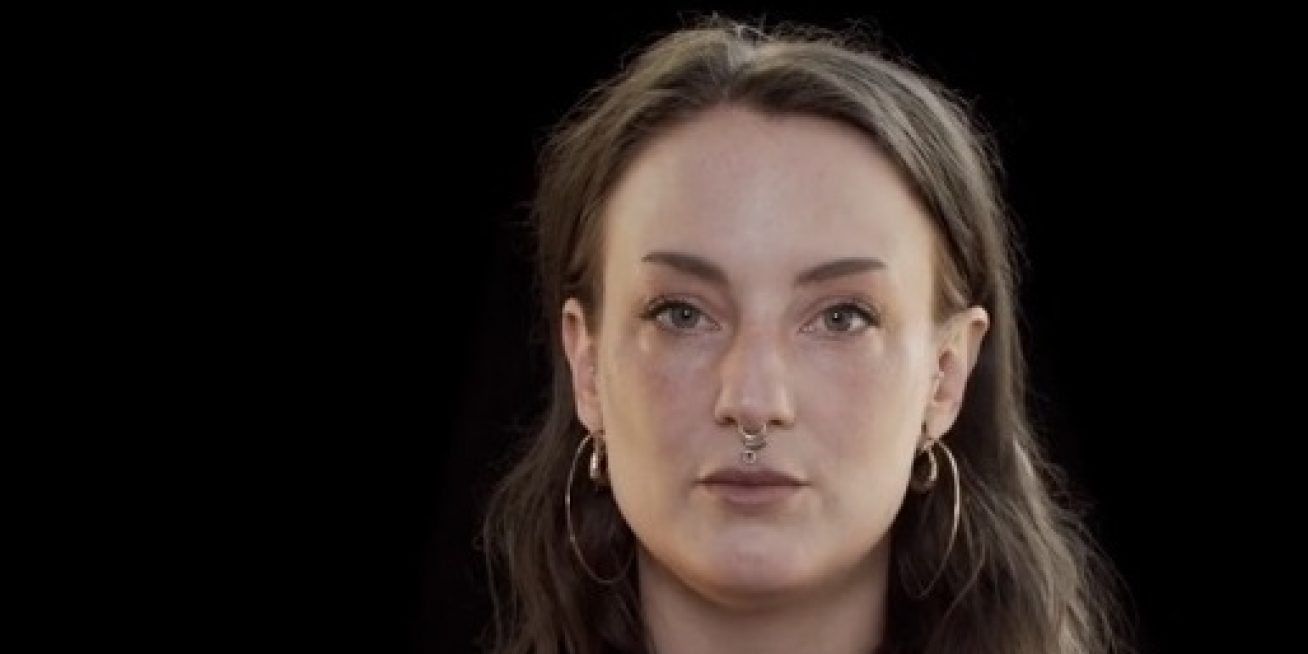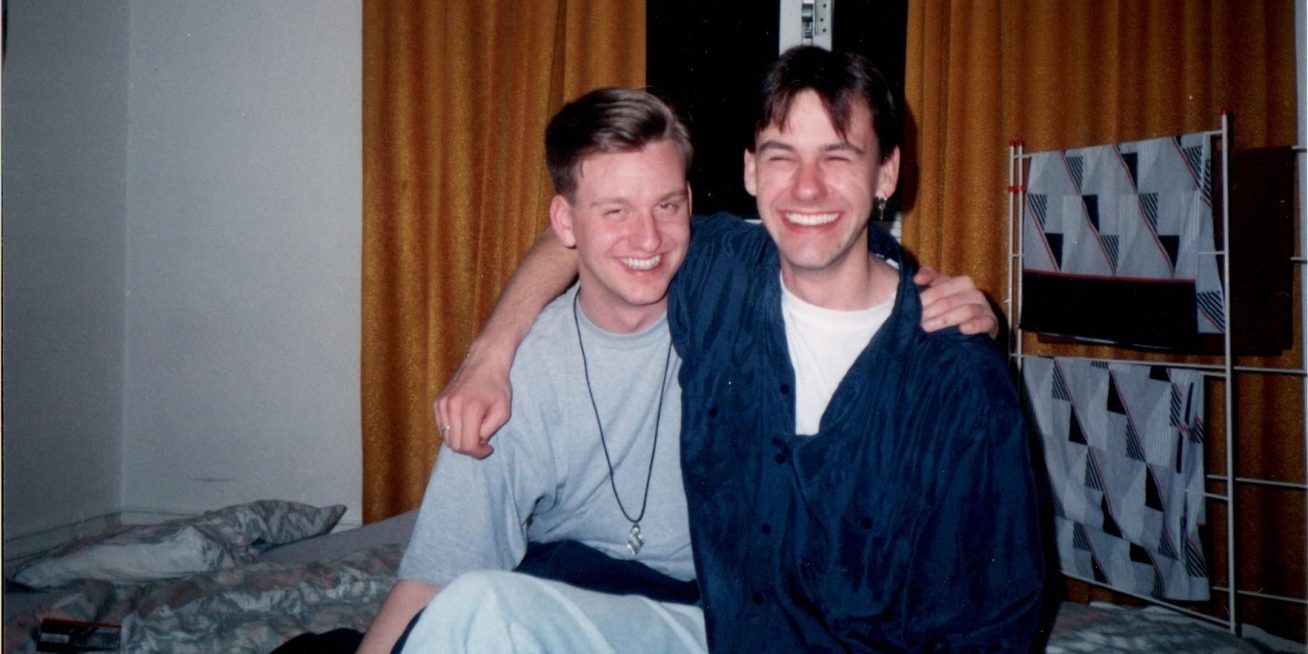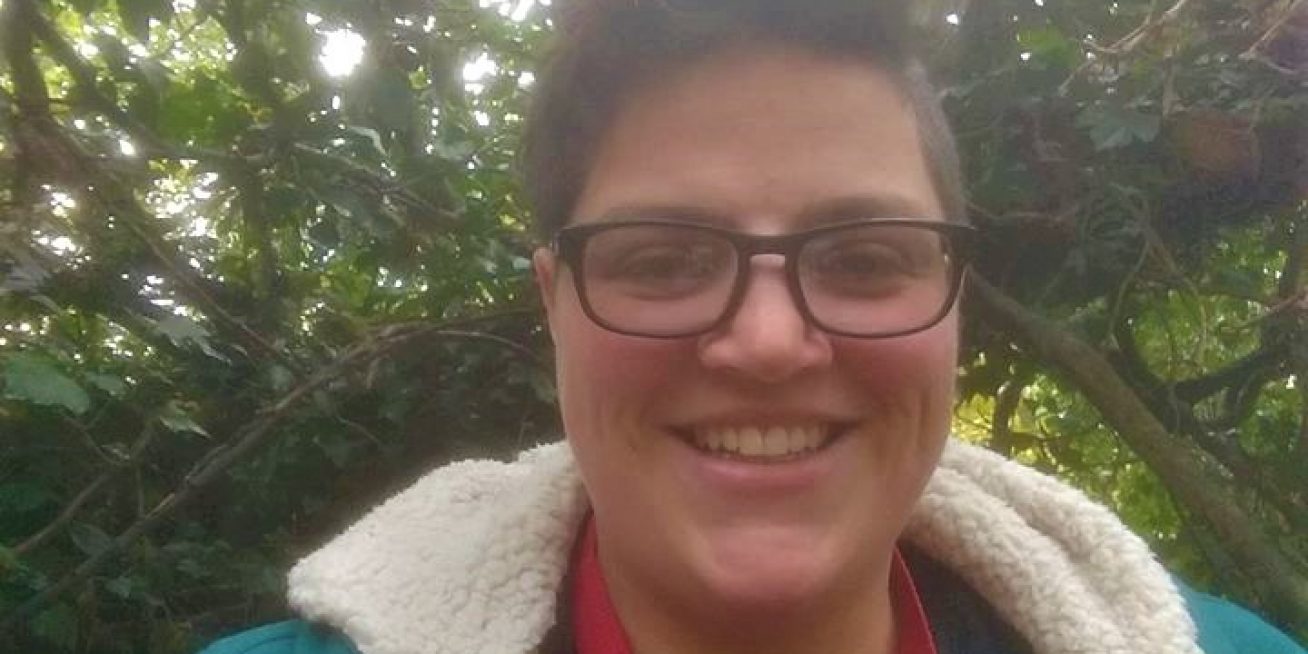Ideas about feminism and lesbian separatism
Members of Sage Women's Space discuss what feminism means to them, their views on men and the importance of lesbian separatism.
This interview was recorded in the summer of 2019. The group later became the LGBT+ Women’s Space. For updates on the activities of Sage, visit the Yorkshire MESMAC website.
Rainbow flag image on Stories Page from stained glass created by Karen Lewis from LGBT+ Women’s Space.
TRANSCRIPT
SUSAN: Well, you know the feminists of this, when I knew of feminism, you know most of the feminist I know at that point when I was a lot younger there was a lot of hatred for men; I've seen slogans around Leeds saying 'men are the enemy' and all this and that. Even if you're in a women's group or a women’s disco and there was a man in the room – they used to walk across to go to the toilet or through a door – even if you were caught looking at a man you would think 'she's not gay, she's not lesbian, she's looking at him'. But, you know, so, I mean I never, sort of like, hate men it’s just that I find it rather difficult to keep men as friends without them wanting something else. You know it’s like, you know, I don't hate men it’s just that I want them to accept me as who I am and not, you know, other, anything else. And I just, I mean the neighbours that I've got know, so that's fine, but I can't really, I mean I sometimes find myself talking more at a club or a disco to the gay men, I can talk more than I can do with other women who are out, I'm talking about when we're out drinking, so yeah, but feminism it was very political and it was very, sort of like, aggressive towards, you know, men really, you know.KAREN: But that is feminism.
SUSAN: Is it?
THE OTHER SUSAN: Yes. I guess being a feminist we were often labelled ‘man-hating’ because we didn't want to mix with men and we were very critical of the actions of men. We were involved with Women's Aid, with Rape Crisis, with... you know, on a daily basis seeing how women were abused by men. For myself I didn't become formally a separatist but the only man I had in my house for, I don't know, 25 years or something, was my brother. I had women plumbers come to the house, I had women electricians and I never invited – and still don't invite – men to parties and that's a choice that's not about hating men; it’s about recognising the power imbalance and the abuse of power that many men – not all men – but many men have used against women. It doesn't mean to say I didn't cry every day for a whole year when my brother died; I did. But, – that's a different brother – it’s just that easy label of 'man-hating' when actually the reasons why I didn't mix with men, and a lot of others didn't, were political reasons. I did know other women who were completely separatist and didn't really like getting on a bus because it was driven by a man, and those sort of things, but they were few and far between really. But they were very outspoken so they were heard, which was really important for the rest of us because they were pushing the boundaries for us. The more they shouted and spoke up, the more space there was for the rest of us and for other women who weren't speaking up at all or getting the chance to be heard. So I have a lot of admiration for separatists – call them 'man-haters' if you like – because of what they did for the rest of us and the benefits we've had from that.
VAL: And are still doing. Because I feel similarly. I mean I don't think I was involved in as many political groups, in terms of Women's Aid and Rape Crisis, you know but I was involved in Clause 28 blah blah blah and was, I think, a separatist. I identified. But I don't think [sighs] because I didn't want to spend time with many men. I did have some friends then. I still have some male friends now, but very few and they are because I have a lot of heterosexual friends and always have done; some of them their partners I'm also friends with, but I don't choose to spend my time, generally speaking, with other men – politically for the reasons that Susan has just mentioned but because of how they are and who they are and thinking I've come to the time of my life when I can choose who I want to spend time with, and...
THE OTHER SUSAN: It's about investment of energy as well, isn't it? because when you spend time with someone, so often as a woman you are listening and, you know, I have a kind of point where I think: 'No, I don't want to, kind of, invest my listening and what I have got to give emotionally into a man' unless there is a particular reason for me to, and that's usually to do with family, and that sort of thing, or supporting another woman by supporting the man.
PAULINE: Can I just put in one final thought about, in this area? I can relate to what Susan was saying about devoting one's time and sort of efforts to men but I have recently become quite close to a trans-masculine person, i.e. somebody genetically female but who has transitioned to becoming a man and it's been a fascinating encounter getting to know that person; this is somebody who is almost – many, sort of, might think of as the ideal man actually, because it's a man who has had the experience of also trying to live as a woman and in transitioning and becoming a man he's trying to not fall... not, not be the kind of man that, when he was living as a woman, he would have disliked and been oppressed by. So I have learnt a great deal from talking to him and I would recommend that if anybody has the chance to get to know a trans-masculine person, because a lot of the discourse about trans people tends to be about trans women, and there are a lot of trans men around as well and they have a fascinating experience to share with us and to learn from I think.







